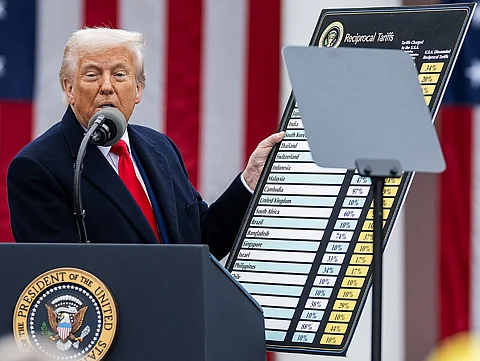

A federal appeals court on Thursday temporarily reinstated the bulk of President Donald Trump’s sweeping tariffs, a day after a U.S. trade court ruled that the levies exceeded presidential authority and ordered an immediate halt.
The U.S. Court of Appeals for the Federal Circuit paused the lower court’s decision to allow time for the government’s appeal, setting deadlines of June 5 for plaintiffs to respond and June 9 for the administration’s reply.
Wednesday’s surprise ruling by the U.S. Court of International Trade had threatened to invalidate Trump’s so-called "Liberation Day" tariffs—a 10% levy on imports from most U.S. trading partners, as well as additional duties targeting Canada, Mexico, and China over alleged facilitation of fentanyl trafficking.
A three-judge panel ruled that the Constitution grants Congress, not the president, the power to impose tariffs, and that Trump overstepped by invoking the International Emergency Economic Powers Act (IEEPA), a law intended for national emergencies.
Trump administration officials dismissed the ruling, vowing to either win on appeal or use alternative executive powers to enforce the tariffs. The president himself lashed out on social media, calling the decision "horrible" and "country-threatening," while accusing the judiciary of undermining presidential authority.
International responses were measured. The U.K. called the ruling a U.S. domestic matter, while Canada praised it as aligning with its view that the tariffs were unlawful. The European Union and Germany declined to comment.
Financial markets, which have been volatile amid Trump’s trade policies, reacted cautiously. Stocks initially rose on the trade court’s ruling but pared gains Thursday as investors anticipated a prolonged appeals process. Analysts warned that uncertainty persists, with tariffs already costing businesses over $34 billion, according to a Reuters analysis.
Not all tariffs were affected—those on steel, aluminum, and automobiles, imposed separately on national security grounds, remained intact.
The Liberty Justice Center, representing small businesses that sued over the tariffs, called the appeals court’s stay a procedural step. Jeffrey Schwab, the group’s senior counsel, argued that the levies inflicted "irreparable harm," including supply chain disruptions and threats to business survival.
In a separate ruling Thursday, another federal court found Trump exceeded his authority in imposing tariffs under IEEPA, though the decision only applied to a single toy company. The administration is appealing that case as well.
White House officials reiterated their stance that courts should not interfere in trade policy. "America cannot function if the president’s negotiations are railroaded by activist judges," said spokesperson Karoline Leavitt.
The legal battle leaves the future of Trump’s trade agenda in flux, with the next hearing scheduled for June 5.